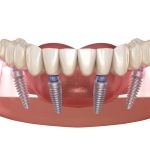How to Whiten Teeth Safely Without Causing Damage: A Complete Guide
- 1. Understanding Teeth Whitening
- 2. The Dangers of Aggressive Teeth Whitening
- 3. Natural Methods for Whitening Teeth Safely
- 4. Over-the-Counter Teeth Whitening Products and Their Safety
- 5. Professional Whitening: The Safest Option
- 6. How to Maintain Your White Teeth After Whitening
- 7. Common Myths About Teeth Whitening
- 8. Conclusion: Achieving a Bright Smile Without Damage
1. Understanding Teeth Whitening
Teeth whitening is a popular cosmetic dental procedure aimed at removing stains and discoloration, giving people a brighter, whiter smile. However, it’s important to understand that not all whitening methods are created equal. Some techniques may be more effective but can also be damaging if not used properly. In this guide, we’ll explore how to whiten teeth safely without causing harm to your enamel or gums.
Before diving into whitening methods, it's essential to know how teeth become stained and what factors influence their color, such as diet, genetics, and lifestyle habits.
2. The Dangers of Aggressive Teeth Whitening
While the idea of achieving an instantly white smile may be tempting, overdoing it with harsh whitening methods can lead to serious dental problems. For instance, using whitening products too frequently or opting for overly abrasive materials can erode the enamel, leaving your teeth more vulnerable to decay and sensitivity.
It’s also common for people to misuse whitening strips or gels, applying them for longer than recommended or using products that contain high levels of bleaching agents. This can lead to gum irritation, tooth sensitivity, and even damage to the enamel. Always follow instructions carefully and consult with your dentist before trying any aggressive whitening techniques.
3. Natural Methods for Whitening Teeth Safely
If you're looking for a gentle, more natural way to whiten your teeth, several home remedies can help lighten stains without causing damage. Some of the most popular and effective methods include:
- Baking Soda: Known for its mild abrasive qualities, baking soda can help remove surface stains when used sparingly. A paste made of baking soda and water can be brushed onto teeth to gently polish them.
- Activated Charcoal: This trendy remedy is believed to help whiten teeth by absorbing toxins and stains. However, it's important to use activated charcoal in moderation as its abrasive nature can wear down enamel over time.
- Hydrogen Peroxide: When diluted, hydrogen peroxide can be a safe and effective whitening agent. It’s commonly found in many whitening products and can be used as a mouthwash or paste.
While these natural methods are effective for mild stains, they should be used cautiously to avoid overuse. Always consult with a dentist before starting any DIY whitening methods to ensure they're safe for your teeth.
4. Over-the-Counter Teeth Whitening Products and Their Safety
Over-the-counter whitening products, including strips, gels, and toothpaste, are widely available and often promise quick results. However, not all products are created equal, and some may be more harmful than helpful.
When selecting a whitening product, look for those that are ADA-approved (American Dental Association) or recommended by dental professionals. Avoid using whitening strips or gels that contain high concentrations of hydrogen peroxide, as they can cause tooth sensitivity and gum irritation.
It’s important to follow the recommended usage guidelines and avoid overuse. Regular brushing with a whitening toothpaste that contains mild abrasives can also help maintain whiteness without risking damage to your enamel.
5. Professional Whitening: The Safest Option
If you're looking for more dramatic results, professional whitening treatments administered by a dentist are your safest option. These treatments are carefully monitored to ensure that they do not damage your teeth or gums.
Professional whitening typically uses stronger whitening agents than over-the-counter products but is applied in a controlled manner. Your dentist may use custom-fit trays or in-office laser whitening, ensuring that the treatment is both effective and safe for your specific needs.
In addition to faster results, professional whitening minimizes the risk of sensitivity and enamel damage, making it a reliable option for those looking for a brighter smile without compromising oral health.
6. How to Maintain Your White Teeth After Whitening
After you’ve successfully whitened your teeth, it’s important to maintain their brightness. The best way to do this is by adopting good oral hygiene practices and avoiding foods and drinks that can stain your teeth.
Here are some tips for maintaining a bright smile:
- Avoid coffee, tea, red wine, and other stain-causing foods and drinks.
- Brush your teeth at least twice a day with fluoride toothpaste.
- Floss daily to remove food particles and plaque buildup.
- Use a straw when drinking dark beverages to reduce contact with your teeth.
- Get regular dental cleanings to remove surface stains.
By following these tips, you can keep your teeth white and healthy for longer periods.
7. Common Myths About Teeth Whitening
There are many myths surrounding teeth whitening that can lead to confusion or even harm. Let’s debunk some of the most common misconceptions:
- Whitening will make my teeth permanently white: Whitening results are temporary and will fade over time. Regular touch-ups are required to maintain your desired shade.
- All whitening products are safe: Not all whitening products are safe. Always choose products that are ADA-approved or recommended by your dentist.
- Whitening products can harm my teeth permanently: If used properly and under professional supervision, whitening treatments are generally safe for your enamel.
8. Conclusion: Achieving a Bright Smile Without Damage
Achieving a brighter, whiter smile is possible without causing harm to your teeth, but it requires careful consideration of the methods you choose. Whether you're opting for natural remedies, over-the-counter products, or professional treatments, always prioritize safety to avoid damaging your enamel or gums.
If you’re ready to take the next step in achieving a brighter smile, visit Dentistry Toothtruth for professional whitening options and helpful tips. Start your journey to a radiant smile today!







 Gardena Dental Care4.0 (416 review)
Gardena Dental Care4.0 (416 review) Taher Family Dental5.0 (161 review)
Taher Family Dental5.0 (161 review) Sons & Daughters Orthodontics Riverside4.0 (198 review)
Sons & Daughters Orthodontics Riverside4.0 (198 review) NÜVA Smile4.0 (105 review)
NÜVA Smile4.0 (105 review) Murray Orthodontics5.0 (538 review)
Murray Orthodontics5.0 (538 review) Rosen Dental Transitions5.0 (5 review)
Rosen Dental Transitions5.0 (5 review) The Importance of Oral Health Education During Pregnancy for a Healthy Pregnancy
The Importance of Oral Health Education During Pregnancy for a Healthy Pregnancy Best Tips for Brushing Your Teeth Properly for Healthy Gums: Essential Techniques for Oral Health
Best Tips for Brushing Your Teeth Properly for Healthy Gums: Essential Techniques for Oral Health Why Skipping Dental Checkups Can Lead to Bigger Oral Health Problems
Why Skipping Dental Checkups Can Lead to Bigger Oral Health Problems Advantages of Porcelain Dental Restorations
Advantages of Porcelain Dental Restorations How Can Diabetes Cause Tooth and Gum Problems? Preventing and Managing Oral Health Issues
How Can Diabetes Cause Tooth and Gum Problems? Preventing and Managing Oral Health Issues Healthy Habits for Promoting Good Oral Health and Hygiene: Tips for a Healthy Smile
Healthy Habits for Promoting Good Oral Health and Hygiene: Tips for a Healthy Smile